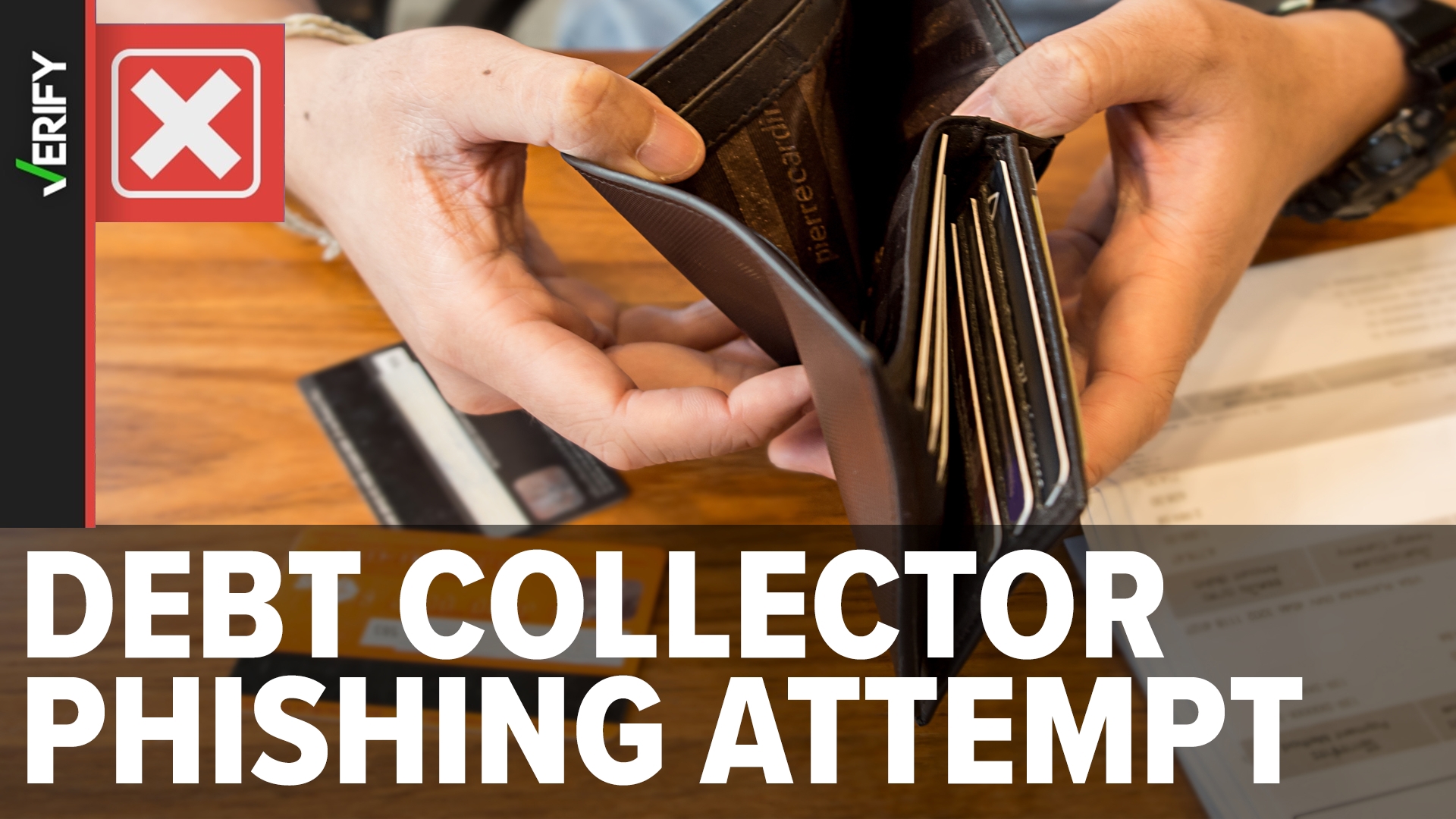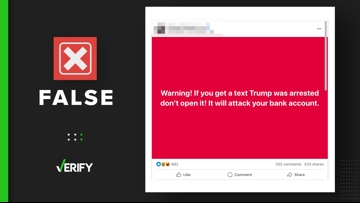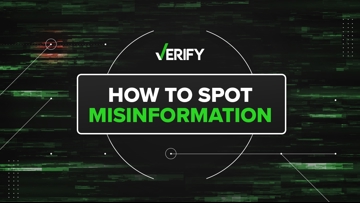HUNTSVILLE, Ala. — Struggling with debt, whether it be medical bills or student loans, credit cards or payday advances, can be stressful and come with an overwhelming stigma and personal embarrassment. Unfortunately, fraudsters are banking on that stigma and the growing amount of debt Americans are taking on in an attempt to steal personal information and your money.
An email we obtained claims to be with a law firm representing an unpaid balance on an ACE Cash Express account and threatens legal action on the recipient, who believes they had an ACE account they let lapse years ago. They weren't sure about this email's legitimacy, however, and asked us to investigate.
THE QUESTION
Is this emailed debt collection notice genuine?
OUR SOURCES
- Semrad Law Firm, the name of the agency cited in the email
- Consumer Financial Protection Bureau
- Fair Debt Collection Practices Act (FDCPA)
THE ANSWER
No, the email we obtained is a phishing attempt.
WHAT WE FOUND
The content of the email rose some immediate red flags; for instance, the name of the alleged sender, Michelle Todd, does not match the signature, "Michela.gould." The message, which hit the recipient's inbox at 5:26 a.m., demands response within four hours. It contains frequent irregular language, including their threat that they "will be Emailing/Faxing this issue to your current employer to make sure they take strict actions against you. Your salary and all your wages were [sic] confiscated."
The email says the amount outstanding as $1,559.57, and later says that if the lawsuit proceeds, they will ask for $8,649.79, without explaining the discrepancy in the amounts. The message then encourages the recipient to "sign a Loan Agreement by clicking the 'I AGREE' button below," which does not exist, then instructs the recipient to email Attorney Carole Archer.
Both email addresses claiming to belong to Archer and the sender of the email connect to Outlook and Gmail accounts, not any law firm domain name.
We started our investigation with some quick Google searches for the names of the women mentioned in the email. While there are attorneys with the name Carole Archer, we did not find any with connections to Austin, Texas, and none with the law firm mentioned in the email, The Semrad Law Firm.
Semrad's website states that it is "a debt relief agency practicing bankruptcy law." This means they would be working on behalf of people who owe money, not representing the firms trying to collect. We spoke by phone with a representative from the firm, who confirmed our email was in fact a phishing attempt. They said they've been aware for some time their name and even phone number was being used in this way. "You can definitely disregard the email," the representative said to us.
According to the Consumer Financial Protection Bureau, the email's claim that they would "confiscate wages" is a direct violation of the Fair Debt Collection Practices Act, and had this been a genuine debt collection attempt, the company or firm could be reported to the Federal Trade Commission for deceptive practices.
The FDCPA also states that electronic communications from a debt collector must offer you a reasonable and simple method for you to opt out.
If you question a collections notice, or even if you believe a debt is owed but want verification of the amount, you're entitled to request letters verifying and validating the account. You should receive an itemized listing of charges, including interest, fees, or penalties. Legitimate debt collectors can work with you on payment plans or settlement offers - as long as you keep the lines of communication open.
Staying informed and knowing how to VERIFY any collections notices you receive may help you when it comes to digging your way out of debt.












